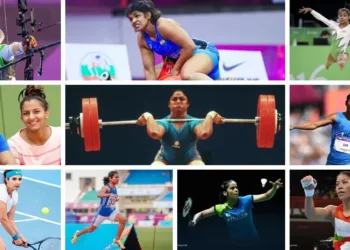Boruto: Naruto Next Generations has been a beacon for fans eager to continue the legacy of the beloved Naruto series. However, as the anime attempts to reconnect with its roots, many viewers have expressed frustration with the direction of its worldbuilding. While revisiting familiar themes and characters can evoke nostalgia, it also risks stifling creativity and limiting the expansion of the Boruto universe. This tension between honoring the past and forging a new path has sparked heated debates within the fandom.
In this article, we delve into why Boruto’s return to the franchise’s roots might be doing more harm than good to its worldbuilding, examining the implications for storytelling, character development, and the overall evolution of the series.
Table of Contents
The Appeal and Pitfalls of Returning to Franchise Roots
Returning to the roots of a franchise often aims to recapture the magic that made the original beloved. For Boruto, this means revisiting iconic characters, themes, and story arcs from Naruto. While this approach can rekindle fan enthusiasm and provide continuity, it also risks redundancy. Instead of expanding the universe with fresh ideas and new lore, the series sometimes leans heavily on nostalgia, which can hinder the development of Boruto’s unique identity. This reliance on past elements may alienate viewers seeking innovation and deeper worldbuilding, creating a divide between long-time fans and newer audiences.

Comparing Naruto’s Original Worldbuilding with Boruto’s Current Approach
| Aspect | Naruto’s Worldbuilding | Boruto’s Current Approach | Impact on Storytelling |
|---|---|---|---|
| Character Development | Deep, evolving arcs with new characters | Focus on legacy characters and callbacks | Limits growth of new characters |
| Lore Expansion | Introduced new clans, jutsu, and history | Revisits established lore extensively | Slows introduction of fresh concepts |
| World Exploration | Diverse settings and political intrigue | Concentrates on familiar locations | Reduces sense of a growing world |
| Narrative Innovation | Bold, original storylines | Reliance on nostalgia-driven plots | Risks predictability and stagnation |
How Nostalgia Can Both Help and Hinder Boruto’s Growth
Nostalgia is a powerful tool in storytelling, especially for a franchise with a passionate fanbase like Naruto. Boruto’s callbacks to the original series provide emotional resonance and a sense of continuity. However, when nostalgia becomes the primary driver, it can overshadow new narratives and character arcs. Fans eager to see Boruto and his peers carve out their own stories may feel sidelined as the series rehashes old conflicts and themes. This tension can lead to dissatisfaction and criticism, as viewers crave a balance between honoring the past and embracing the future.

Fan Reactions: Divided Opinions on Boruto’s Direction
The Boruto fandom is split on the anime’s current trajectory. Some appreciate the homage to Naruto’s legacy, finding comfort in familiar faces and storylines. Others argue that the series is stagnating, with worldbuilding that feels recycled rather than innovative. Online forums and social media are rife with debates about whether Boruto should break free from its predecessor’s shadow or continue to build upon it. This division reflects broader challenges in continuing a beloved franchise while trying to appeal to both old and new audiences.
The Importance of Evolving Worldbuilding for Long-Term Success
For Boruto to thrive as a standalone series, it needs to evolve its worldbuilding beyond nostalgia. This means introducing new characters with compelling arcs, expanding the universe with fresh lore, and exploring uncharted territories within the ninja world. Evolving the narrative will not only satisfy fans hungry for originality but also attract new viewers. A dynamic and growing world is essential for maintaining interest and ensuring the series’ longevity. Without this evolution, Boruto risks becoming a mere shadow of Naruto, unable to establish its own legacy.
One Piece Chapter 1149 Predictions: Major Spoilers and Game-Changing Theories
FAQs
Q1: Why do some fans dislike Boruto’s return to Naruto’s roots?
Many fans feel that relying too heavily on nostalgia limits new character development and fresh storytelling, making the series feel repetitive.
Q2: Can Boruto still develop its own unique worldbuilding?
Yes, by focusing on new characters, expanding lore, and exploring new storylines, Boruto can carve out its own identity separate from Naruto.








